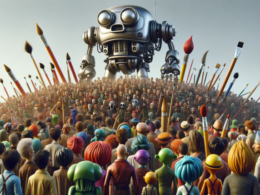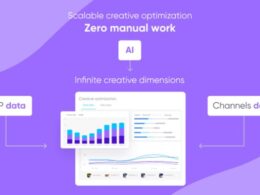AI Company Anthropic Faces Major Lawsuit from Music Publishers
Several major music publishers, including Concord, Universal, and ABKCO, have filed a bombshell lawsuit against AI company Anthropic. The lawsuit alleges that Anthropic has engaged in the “unlawful taking and using [of] massive amounts of copyrighted content without permission” to train its popular large language model (LLM) chatbot, Claude. The plaintiffs claim that Anthropic’s actions are infringing on publishers’ rights and causing widespread damage.
Accusations and Allegations
The lawsuit, filed in the Middle District of Tennessee Nashville Division, accuses Anthropic of “wholesale copying” of song lyrics to fuel its AI models. These AI models then regurgitate the copyrighted lyrics when users request songs. The venue of the lawsuit, Tennessee, is known as America’s “Music City” and has a long history in the music industry, making it a favorable ground for artists and labels leveling lawsuits.
The plaintiffs argue that Anthropic directly infringes on publishers’ exclusive rights as copyright holders, including reproduction, preparation of derivative works, distribution, and public display. They also allege that Anthropic enables massive copyright infringement by users of its technology. The lawsuit takes aim at Anthropic’s business model, claiming that the company profits from its infringement through commercial partnerships and billions in funding, all made possible by scraping vast amounts of copyrighted material from the internet.
Examples and Impact
The lawsuit includes examples of Claude providing near word-for-word copies of lyrics to popular songs, such as Katy Perry’s “Roar” and Gloria Gaynor’s “I Will Survive”. The publishers argue that Anthropic could easily implement filters to block copyrighted content but instead continues to unlawfully exploit their catalogs.
This major lawsuit poses a serious test for Anthropic and other AI companies that profit from training models on copyrighted data. As creators fight back, courts will play an increasing role in balancing intellectual property rights with AI innovation. The outcome of this legal battle could have significant implications for the AI industry.
Other Legal Fire and the Future
Anthropic is not the first AI firm to face legal challenges over training data. Comedian Sarah Silverman sued OpenAI and Meta in July, alleging that chatbots like ChatGPT and LLaMA were fed her memoir without consent. Similar claims have been filed against OpenAI by other authors. These cases highlight the growing concern among creators as generative AI, powered by ingesting vast amounts of text and images, becomes more popular.
The core question of whether AI training constitutes copyright “fair use” may eventually end up before the Supreme Court. Big Tech argues that fair use allows mining copyrighted data to enable transformative new technologies, while artists argue that it undermines their work and markets. The outcome of this legal skirmish between music publishers and Anthropic will have implications for AI development across industries.










